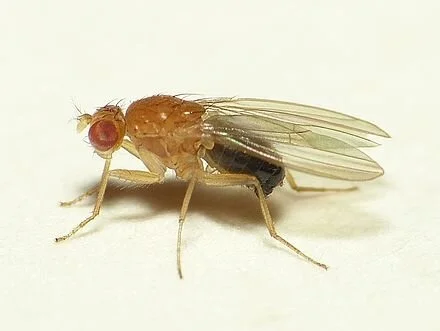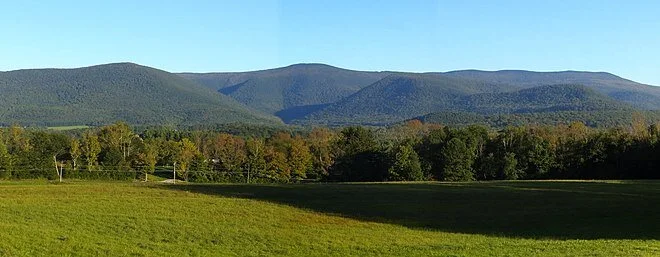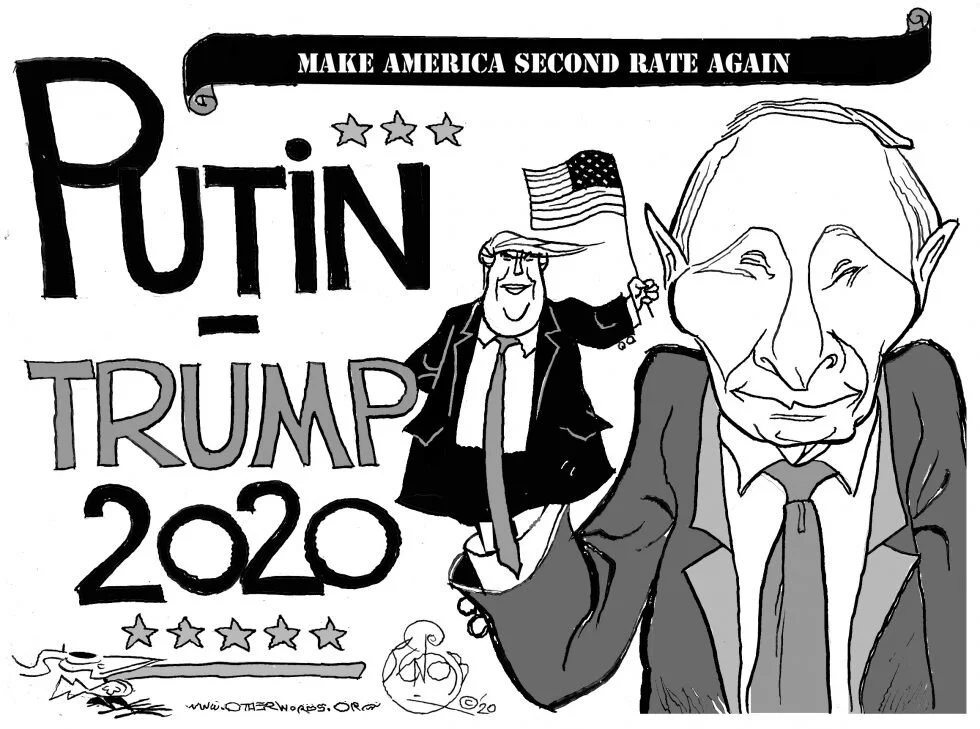
Put on your reopening list
William (“Willit’’ ) Mason, M.D., has written has a delightful – and very handy -- book rich with photos and colorful anecdotes, called Guidebook to Historic Houses and Gardens in New England: 71 Sites from the Hudson Valley East (iUniverse, 240 pages. Paperback. $22.95). Oddly, given the cultural and historical richness of New England and the Hudson Valley, no one else has done a book quite like this before.
The blurb on the back of the book neatly summarizes his story.
“When Willit Mason retired in the summer of 2015, he and his wife decided to celebrate with a grand tour of the Berkshires and the Hudson Valley of New York.
While they intended to enjoy the area’s natural beauty, they also wanted to visit the numerous historic estates and gardens that lie along the Hudson River and the hills of the Berkshires.
But Mason could not find a guidebook highlighting the region’s houses and gardens, including their geographic context, strengths, and weaknesses. He had no way of knowing if one location offered a terrific horticultural experience with less historical value or vice versa.
Mason wrote this comprehensive guide of 71 historic New England houses and gardens to provide an overview of each site. Organized by region, it makes it easy to see as many historic houses and gardens in a limited time.
Filled with family histories, information on the architectural development of properties and overviews of gardens and their surroundings, this is a must-have guide for any New England traveler.’’
Dr. Mason noted of his tours: “Each visit has captured me in different ways, whether it be the scenic views, architecture of the houses, gardens and landscape architecture or collections of art. As we have learned from Downton Abbey, every house has its own personal story. And most of the original owners of the houses I visited in preparing the book have made significant contributions to American history.’’
To order a book, please go to www.willitmason.com
Resilient nature
From Linda Klein’s show “Nature Defiant,’’ at Bromfield Gallery, Boston, Sept. 4-27. She explains:
“The content of this exhibit continues the direction I began in my 2004 exhibit, ‘Excess,’ about which I wrote, ‘My paintings and drawings came out of a conscious awareness of my anxiety about where we are going in our world.’
“Unlike the anxiety that I expressed in that exhibit, this work is devoted to celebrating the resilience of nature and enacting nature’s desire to assert itself through forms that derive from nature itself and flourish in the human imagination as it creates the forms of things unknown. When I began this process, many months ago, no one could have predicted the pandemic that has caused us all to pause. I too sometimes forget that we share this world with many life forms, unseen or ignored, until they assert themselves and demand my attention.’’
See:
https://www.lindakleinart.com/
and:
bromfieldgallery.com
'Ungainly mounds'
“In September and October one never walks or drives through this Connecticut Valley without smiling at these ungainly mounds of squashes and pumpkins heaped in uneven, bulging pyramids on green grass, or against barnyard fences, or under bright trees, or before the doors of farmhouses.’’
— Mary Ellen Chase (1887-1973), in A Journey to Boston (novel, 1965). She was a prolific novelist and essayist who taught for many years at Smith College, in Northampton, Mass., in the Connecticut River Valley.
Don Pesci: Our dogs: 'A piece of God's grace'
VERNON, Conn.
Mark Twain, who said pretty much everything worth saying, said about dogs: “The more I learn about people, the more I like my dog.”
Twain, one of those lucky few in whom the virtue of humor was fully grown, told a stretcher or two in his day, but his humor was the iron fist of truth, always difficult for those of us who are not saints to bear, wrapped in appetizing comic chocolate, and so made easier to swallow.
He liked dogs and often compared them to people: “If you pick up a starving dog and make him prosperous, he will not bite you. This is the principal difference between a dog and a man.”
A modern progressive, full of rancor and social justice, might want to pause over that one. One of Twain’s dogs was named “Prosper” and, unlike the fire breathing, eat-the-rich, modern progressive, Twain had no quarrel with prosperity. A true child of the Gilded Age, which he named, Twain’s fervent hope for today was always that he would be prosperous tomorrow. Lucky for him, he lived, among other places, in Hartford, Connecticut, rather than, say, Nicolás Maduro’s Venezuela, an exploded post-Stalinist pipe dream.
But enough about politics.
Yesterday, we drove Titan, my wife Andrée’s Fidelco guide dog, to the Bolton Veterinary Hospital and had him “put down,” a modern locution intended to rob death of its sting. It does no such thing. Titan lived to be 13½ years old. Andree was deeply, deeply wounded, and grief silences the heart. You want to scream, and no sound issues from you; you want to weep, and your eyes are a parched desert. The choice was made for us by Titan’s afflictions: a condition in dogs very much like Lou Gehrig’s Disease in humans (degenerative myelopathy) and extreme vertigo (vestibular disease). Titan struggled with these disabilities for months, always bravely.
Titan came to us nearly 12½ ago where, bounding into the house, he met Jake, Andrée’s first guide dog, the handsomest black and tan German Shepherd in Connecticut, perhaps the world, full of years and happy to be retired.
Andrée: The world will become a true utopia when the tireless reformers so rearrange it that one is able to retire upon graduation from college.
Jake, like most German Shepherds, more or less prowled, always alert, head up, ears pointed, and ready to meet the bristling world on its own terms. Titan bounced, the perpetual youth, an irrepressible spring in his step. I wrote about Jake here. He is alive in our memories. Dogs, for reasons hinted above by Twain, are more easily remembered than people.
Andrée insists – and one can disagree with this imperishable truth only at the point of a sword – that Titan kept Jake in good order for two years, before he slipped from our grasp and went on his way to Heaven at age 14½. Twain again: “Heaven goes by favor. If it went by merit, you would stay out and your dog would go in.”
I’ve lost many things during what folk now call my “life’s journey” – my youth, the spring in my own step, my hair, my reputation, my patience, occasionally my sense of humor – but I can tell you, none of these losses compare with the loss of a dog, because a dog, especially a guide dog, is not just a dog. He is a piece of God’s grace dropped like Holy Water into Hell.
None of us lucky sighted people can know how life presents itself, most often with bared teeth, to those like my wife of 53 years, who was legally blind from birth. It’s a daily struggle. To be won, the day must first be conquered, and the struggle is exhausting. This she has done with great courage and grace all her life. But when Jake first came into her life, she was, for the first time in her life, truly and fully liberated.
Then Titan put a bounce in her step. His fur was not coarse but silken; his eyes were brown amber gemstones; if he could smile, his smile would wrestle the world to the ground. Everywhere he went – and he never left her side for a moment -- he drew gasps from people. Men especially were drawn to him.
Me: Hey, Andrée, if I just step out of the way, I’m sure you could do much better with Titan at your side – maybe pick up one of those white or black privileged hedge fund millionaires down there in Fairfield County.
Born in Fairfield County, Connecticut’s Gold Coast, Andrée was familiar with the breed.
Andrée: Hmmm. Let me sleep on it.
My love, nothing that the creative hand of God has touched is lost forever to nothingness. Love is the greatest of God’s many gifts to us, the most precious of his wonder working mysteries. And because you loved Titan, and his love to you was retuned a thousand fold -- he lives.
Don Pesci is a columnist who lives in Vernon.
E-mail: donpesci@att.net
Tikki Pang/Zhi Xiong Chen/Yap Seng Chong: A vision for past-pandemic medicine
SINGAPORE
When the COVID-19 pandemic finally ends, what will we have learned? Health-care professionals have done their best to cope with the unprecedented challenge posed by COVID-19, and in many cases their performance and conduct have been truly heroic. But there have been missteps, too, and training the next generation of physicians will require a new paradigm for medical education.
What additional skills will future physicians need to navigate the post-pandemic world? The answer lies in a more pragmatic, holistic, and realistic “world view’’ as to what constitutes good health based on the following three key concepts.
A Holistic and Integrated Systems View
For physicians of the future, the narrow view of clinical competence and the ability to diagnose and cure disease will not be enough. They must acquire a more integrated understanding of what constitutes good health, be reminded of the “humanity” in medicine, and affirm the principle that healthy lives include physical, mental, social and spiritual well-being.
This goal will require a more societal and “systems-based thinking’’ approach. Doctors will need to appreciate not only the influence of social determinants but also of rapidly evolving sectors beyond health. Importantly, in an age of unprecedented technological innovations in big data, artificial intelligence, and informatics, they will have to understand the invaluable role these drivers will play in future health improvement.
This first goal can be achieved through teaching innovations that restore humanity in medicine by, for example, highlighting the intersection between health and art. In addition, a greater awareness of the history of human health and medicine will lead to better decision-making. As George Santayana famously said, “Those who cannot remember the past are condemned to repeat it.”
The Importance of Inquiry and Thinking
The second concept derives from the current toxic environment of misinformation, falsehoods, pseudo-scientific “facts’’ and the outright denial of science itself. Future physicians must guard the sanctity of inquiry, critical thinking, and scientific evidence in guiding decision-making. Future physicians must also be “data savvy’’ and be able to tap into the detailed health data available at both the national and global levels.
In the larger context of how public policies impact society, future physicians must also be aware of the role and value of evidence in shaping such policies within the health sector and beyond. The need to have an inquiring mind was succinctly expressed by physicist Richard Feynman, who said, “I would rather have questions that can't be answered than answers that can't be questioned”.
The goal of developing an inquiring mind can be achieved, for example, by exposing students to the principles and foundations of the scientific method, paradigms of research, and by requiring student-driven research projects.]=
Solidarity among All Nations – Health Is Global
Beyond the shores of a small island like Singapore, and as eloquently expressed by Singapore diplomat Kishore Mahbubani, “coronavirus is telling us to be a citizen of our country, and our world. The disease has shaken the human species to the core, but we must grasp the metaphysical messages it is sending. To survive in the short term, we need national solidarity – but to survive in the long term, we need global solidarity”.
The third goal, therefore, in the training of future physicians is that they must become ‘’globally-minded leaders’’ contributing to the betterment of well being for humanity. They should be aware not just of matters related to “global health” but also of existential challenges in the much larger context of “planetary health.’’
This objective can be achieved by introducing relevant topics throughout the curriculum that go beyond traditional biomedical and clinical dimensions. These courses should include economics, development, business, history, politics, behavioral sciences, and ecology, among others.
A New Breed of Medical Educators
Finally, to achieve these crucial goals for the next generation of physicians, educators must adopt a similar attitude of humility. Defensive reactions to medical students’ questions are counter-productive. Instead, educators should exemplify the empathy expected of these future doctors and encourage them in their aspirations. Traditional didactic approaches should be replaced by project and group work led by the students themselves.
In the post-pandemic era, online teaching and hybrid classes are likely to become the norm. To keep students engaged, educators will need to employ new teaching methods, such as interactive tasks, breakout sessions, and thought experiments. The coming academic year will test educators’ humility, agility, and adaptability.
Indeed, the pandemic presents an opportunity to develop a new paradigm for medical education. It is no longer sufficient for physicians of the future to commit to the dictum of “first, do no harm”. They must embrace a broader mindset of “first, do good for humanity” – to value humility, inquiry and solidarity in order to help ensure the well being and survival of the human species.
Tikki Pang is a visiting professor; Zhi Xiong Chen is senior lecturer and assistant dean (Education), and Yap Seng Chong is a professor and the dean at the Yong Loo Lin School of Medicine, at the National University of Singapore.
David Warsh: Trump's stain is indelible, but....
SOMERVILLE, Mass.
Watching the GOP convention last week, I had the feeling that there were two versions of the Republican Party on the program. One was a personality cult built around Donald Trump and his children, The other professed to be an open, vibrant aggregation of all sorts of people sharing all kinds of concerns: foreign competition, immigration, religion, education, health care, military service, taxes, red tape.
The first party’s convention culminated in an extravaganza straight out of The Hunger Games, in which the coronavirus pandemic had happened long ago. The second convention resembled a non-alcoholic version of the Democratic Party. All that was missing was inequality and climate change.
If Trump loses the election in November, will he go away? Of course he won’t. his tweets will continue as he seeks to retain his hold, But the acknowledgment last week of the existence of that second congregation made it possible to believe that the Republican Party might regain possession of itself sooner than expected.
Certainly, that is not the conventional wisdom, “Whether Mr. Trump wins or loses in November, he now owns the Republicans,” wrote columnist Edward Luce in the Financial Times. “They are now prisoners of the Frankenstein they helped to create.” Ross Douthat, of The New York Times, wrote, “Even if he loses, his power will probably ebb only slowly, if at all.” The FT’s Demetri Sevastopulo notes that some Republicans warn that, even if he loses, there is nothing to prevent him from running again in 2024. In that case, asks an influential Trump critic, “Which Republican would be able to defeat him in a primary?”
That’s easy. For that ghost Republican a party seeking cross-over voters in a future election, the most attractive would be Nikki Haley, former governor of South Carolina, who was Trump’s ambassador to the United Nations. A point often missed about Trump’s 2016 insurgency is that many of his positions now appeal well beyond his vaunted “base.” An idiot-savant is a person who has a mental or learning disability but is extremely gifted in a particular way, such as the performing of feats of memory or calculation, Trump’s disability is characterological, but his political judgment has, in several instances, been acute, in both their popular appeal and their substance (though never their execution).
Thus tougher trade policy with China, more coherent immigration controls, prudent assessment of America’s foreign wars, realistic relations with Russia are broadly popular positions. Add a revenue-neutral carbon tax to the platform – that being a well-established Republican ambition, at least in policy circles – and the differences between the two parties would turn on their plans for social spending, tax equity and cultural inequities.
What happens next will depend on the margin in the November election. If Trump wins, or loses by a very narrow margin, all bets are off. If Joe Biden wins by a substantial margin, expect the maneuvering among Republicans to begin immediately. Whatever happens to the Senate in 2020, the key to the 2024 Presidential election may be what happens in the Senate elections of 2022, when 22 Republicans seats will be at risk, compared to those of a dozen Democrats. Would-be presidential candidates must wait to see what happens then.
Biden’s age would make him likely not to run for re-election. Vice President Kamala Harris vs. Nikki Haley would be a most interesting matchup in 2024, one that could go a long way toward restoring a degree of civility to American politics. As the 2016 primaries demonstrated, party machinery tends to swing behind whoever is thought to be capable of delivering a victory. Under certain circumstances, it is possible to imagine a GOP rostrum in 2024 featuring George W. Bush, Mitt Romney, Colin Powell, members of the Reagan, McCain and Cheney families — and no Trump anywhere in sight.
Can Trump be expunged from American politics? Deleted from the record? Of course the answer, again, is no. The stain is indelible. But with some luck, Donald J. Trump will be consigned to the chapter of history books in which he belongs, along with Joe McCarthy, Roy Cohn, Charles Lindbergh, Joseph P. Kennedy, Huey Long and sundry other anti-democracy people of the 20th Century. It is a pleasant thought, at least, for the last Monday in August.
David Warsh, an economic historian and a veteran columnist, is proprietor of Somerville-based economicprincipals.com, where this essay first appeared.
Chris Powell: Do we need these subs for anything but jobs?
USS Nautilus moored in Groton at the Submarine Force Museum
MANCHESTER, Conn.
Since it's not considered sensible to ask the barber if you need a haircut, how is it any more sensible to ask members of Congress from Connecticut if the country needs more attack and ballistic-missile submarines when many are made at Electric Boat in Groton?
Many years ago it was sometimes possible to find a member of Congress from Connecticut who opposed, at least nominally, one stupid imperial war or another, as long as ending the war would not reduce military contracting in the state. But not today. While all the members of Connecticut's congressional delegation are liberal Democrats, each seems indifferent to the prospect of another 20 years of war in Afghanistan, though most Connecticut residents might not be able to find the country on a map.
The big achievement of Joe Courtney's seven terms in the U.S. House from Connecticut's 2nd District, which includes Groton, has been his persuading the federal government to build two attack submarines a year. Courtney has been extremely conscientious about this. He got on the House Armed Services Committee and eventually obtained the chairmanship of its subcommittee on sea power, and he is expert in all the rationales for the United States to fill the oceans with subs built at EB.
The other day Courtney induced the navy secretary to visit the EB shipyard, in part to evaluate whether the company has the capacity to keep building two attack subs each year while starting to build the new generation of missile submarines, the current generation being 30 years old and replacing it having higher priority with the Defense Department than producing a second attack sub every year.
The military rationale for all these submarines might be more persuasive if the state's congressmen weren't also so easily persuaded to sustain the endless war in Afghanistan.
It also might be more persuasive if the federal government hadn't recently concluded amid the virus epidemic that money is infinite and so can be created out of nothing forever as a claim against not only this country's production but the whole world's as well, and without ever wrecking the currency and whatever is left of the market economy.
Not that Connecticut has much interest in the military rationale for the submarines -- or for the jet engines, helicopters, and other weapons of war manufactured in the state. In his official biography, Courtney himself ignores the military rationale for more subs, concentrating instead on the jobs they sustain in his district.
Connecticut might consider Courtney a hero even if he had persuaded the federal government to award EB the same value of contracts to make not submarines but obsolescences like typewriters and video-cassette recorders, which, after all, dropped from B-52s high above Afghanistan, might be more effective against the religious crazies below than any tactics now being used by U.S. forces there.
Of course Courtney and his colleagues in the Connecticut delegation might face some plausible competition for re-election if they ever questioned the military rationale for the products requisitioned here by the Defense Department. Can anyone elected on a state or district level dare to pursue a national interest above a local or special interest? Certainly not if his constituents cannot themselves distinguish between those interests.
Thus big government erodes the principles of nearly everyone in office if it doesn't make them hypocrites. Thirty years ago no one observing Courtney's work as a liberal state representative chairing the General Assembly's Human Services Committee would have guessed that he would go down in history for building the deadliest warships. But even liberal Democrats in Connecticut must serve the military-industrial complex above all, just as conservatives in the Midwest must pledge allegiance to farm subsidies, and politicians of every inclination must propitiate most of what's big enough -- if not the investment banks, then the government employee unions. Some manage to serve both the banks and the unions.
Does anybody in politics really believe in a public interest, believe in anything besides whatever favors his own advancement? And if anybody really did believe in a public interest and expressed some original thought and independence about it, would anyone vote for him?
Chris Powell is a columnist for the Journal Inquirer, in Manchester.
Lemonade from lemons
— Photo by AleSpa
From Robert Whitcomb’s “Digital Diary,’’ in GoLocal24.com
This might be the most significant news around here lately. Cambridge-based Synapse Energy Economics has done a study, commissioned by the State of Rhode Island, that concludes that new solar arrays on already-developed land such as parking lots and brownfields could power many, many Rhode Island homes. With malls and some free-standing big-box stores closing, there will be more and more such available space on abandoned parking lots. And of course there are plenty of flat roofs available. It beats chopping down more trees or building over old farm fields to make space for more rural solar farms.
To see/hear a video on this big business and environmental opportunity, please hit this link.
'Long has paled that sunny sky'
A boat, beneath a sunny sky
Lingering onward dreamily
In an evening of July—
Children three that nestle near,
Eager eye and willing ear,
Pleased a simple tale to hear—
Long has paled that sunny sky:
Echoes fade and memories die:
Autumn frosts have slain July.
Still she haunts me, phantomwise,
Alice moving under skies
Never seen by waking eyes.
Children yet, the tale to hear,
Eager eye and willing ear,
Lovingly shall nestle near.
In a Wonderland they lie,
Dreaming as the days go by,
Dreaming as the summers die:
Ever drifting down the stream—
Lingering in the golden gleam—
Life, what is it but a dream?
— “A Boat, Beneath a Sunny Sky,’’ by Lewis Carroll (1832-98), most famous for Alice’s Adventures in Wonderland
Climate 'ameliorated or deteriorated' by us
George Perkins Marsh when he was U.S. ambassador to Italy
The quote below is from an 1847 speech by George Perkins Marsh (1801-82), a native of Woodstock, Vt., to the Agricultural Society of Rutland County, Vermont. Marsh, a distinguished philologist, diplomat and naturalist, was the first modern thinker to theorize that man's activities influence climate (but never mentioning carbon dioxide). Some historians have labeled him the first American environmentalist.
"Man cannot at his pleasure command the rain and the sunshine, the wind and frost and snow, yet it is certain that climate itself has in many instances been gradually changed and ameliorated or deteriorated by human action. The draining of swamps and the clearing of forests perceptibly effect the evaporation from the earth, and of course the mean quantity of moisture suspended in the air. The same causes modify the electrical condition of the atmosphere and the power of the surface to reflect, absorb and radiate the rays of the sun, and consequently influence the distribution of light and heat, and the force and direction of the winds. Within narrow limits too, domestic fires and artificial structures create and diffuse increased warmth, to an extent that may effect vegetation. The mean temperature of London is a degree or two higher than that of the surrounding country, and Pallas believed, that the climate of even so thinly a peopled country as Russia was sensibly modified by similar causes."
Marsh is memorialized in, among other places, the Marsh-Billings-Rockefeller National Historical Park, in Woodstock. The park preserves the site where Frederick Billings established a managed forest and a progressive dairy farm. The name honors him and the other past owners of the property: George Perkins Marsh, Mary Montagu Billings French, Laurance Rockefeller and Mary French Rockefeller.
Carriage road in the the Marsh-Billings-Rockefeller National Historical Park.
Grace Kelly: Waste management important in suppressing coyote population
From ecoRI News (ecori.org)
On a recent Friday afternoon, online viewers watched as Numi Mitchell, lead scientist for the Narragansett Bay Coyote Study (NBCS), held what looked like a large antenna in one hand and a beeping device in her other. An osprey cries overhead, and if it weren’t for the Providence Police Department’s Clydesdale horses in the paddock, you wouldn’t know that Mitchell was in Roger Williams Park.
“She’s here!” Mitchell said, as a particularly loud beep sounded.
She being a female coyote named Whinny, who is making her way through the park along with her three pups. Some other hot spots on Whinny’s travels include a trash-collection area in the park and the wind turbines near Save The Bay on Providence’s working waterfront.
The NBCS, which started in 2004, tracks local coyotes, like Whinny, in an effort to observe their movements and populations and to pinpoint unnatural food sources such as trash-disposal areas and farm-animal byproducts.
Coyotes are omnivores, eating a variety of food from berries to bunnies. But they are also opportunistic, and a dumpster can provide an easy meal with little effort.
In her 16 years studying Rhode Island’s coyote populations, Mitchell has found that the increase in the animal’s numbers can largely be attributed to people’s carelessness with food and their compulsion to feed wild animals.
Before coyotes arrived in Rhode Island and other areas along the East Coast, they were dwellers of the broad expanse of prairie in the country’s interior.
“They were originally from the Great Plains,” said Mary Gannon, wildlife outreach coordinator for the Rhode Island Department of Environmental Management’s Division Fish and Wildlife. “But when European settlers came [to New England], they cut down forests and killed a lot of the natural predators in our area.”
Some native predators that predated coyotes in Rhode Island and New England included the gray wolf, mountain lions, and bears. With these large predators gone, there was room for coyotes. They moved in.
“The coyotes expanded their territory to the north and south of the U.S.,” Gannon said.
She said they first arrived in Rhode Island in the 1960s and reached the Narragansett Bay islands in the mid-’90s. Soon after their arrival, the state’s coyote populations began to quickly increase, thanks to ample access to human-produced trash.
“Our tracking efforts started on the islands, particularly Aquidneck Island, which was seeing an explosion of coyotes,” Mitchell said. “We were trying to figure out why they were so abundant. And it’s the garbage that is subsidizing the coyote’s diet. It’s not the coyotes that are the problem; it’s people leaving trash outside.”
While hunting of coyotes is allowed, NBCS has maintained that it’s trash management that is the key to reducing coyote populations.
In 2018, NBCS received a $1.1 million federal grant to fund a five-year study of coyotes in Rhode Island, part of which includes food-removal experiments across the state. Mitchell noted that one of these efforts will be with a farmer in the Coventry village of Greene, whose animal waste and byproduct has attracted and fed coyotes in the area.
Back at the Providence police paddock, Mitchell and her crew try to coax Whinny out from her hiding place to offer a fleeting glance to online viewers. They hop the fence, and with a shaking camera and curious Clydesdales running over to get a piece of the action, it feels like a James Bond film.
Suddenly, they gasp at the sound of paws crunching delicately in the underbrush.
“She just ran by us,” whispered Gabrielle De Meillon, a technical staff assistant for DEM. Whinny is a pixelated streak of gray as she continues on her way to seek out trash and continue her journey through Providence.
Grace Kelly is an ecoRI News journalist.
Llewellyn King: Planting trees for health; data-mining sewage
Late 1800s “shotgun house’’ on South 5th St., in South Louisville, focus of a tree-planting program
Louisville Waterfront Park exhibits rolling hills, spacious lawns and walking paths in the downtown area.
WEST WARWICK
There is health in trees and a narrative in sewage. That is the double story coming out of the Christina Lee Brown Envirome Institute at the University of Louisville.
In Louisville, where the air quality ranks among the worst in Kentucky, the Envirome Institute is planting trees at a near manic pace, but it isn’t planning to wait years for the first payoff.
There is scientific purpose and a plan, and even the federal government is involved because, as Theodore “Ted” Smith, director of the institute’s Center for Healthy Air, Water and Soil, told me, the tree-planting project, called Green Heart, is also a fully-fledged clinical trial of the type normally used to assess the impact of medicines.
“Actually it’s a drug trial of sorts, except the drug is trees and bushes. You could go to clinicaltrials.gov, where all the clinical trials are listed, and under ‘drug,’ it says ‘trees,’ ” said Smith. “We’re taking very seriously the need to empirically demonstrate what the value of trees, bushes, greenery, nature is; what is the basis of the connection of exposure to green places and the improvement in human health.”
People living in four South Louisville neighborhoods where trees are being planted will be monitored against a control group in neighborhoods that aren’t being planted and surrounding Jefferson County. The project’s stated purpose is “testing if increasing green space in a neighborhood improves air quality and human health with the goal of developing a ‘greenprint’ for creating healthier neighborhoods.”
Aruni Bhatnagar, the institute’s director, told me that they chose to study the heart because cardiovascular disease is the leading cause of death. He said 8,000 to 10,000 trees are being planted in every available space in Louisville: open land, along roadways, and anywhere else that will support trees.
The trees are already of substantial size -- 15 feet to 20 feet high -- when they are transplanted in Louisville, which also has an urban-blight problem. They’re planting evergreen trees because they have year-round foliage, increasing their impact.
Smith said, “We’re very hopeful that we’ll be able to shed some light on just what are the benefits of trees. Maybe it’s cooling: There are a lot of people who are concerned about heat issues in cities. We’re concerned about pollution. As a research institute, we’ve had a long track record in working on exposure to pollutants. That is one of the functions trees perform for us.”
Like all scientific institutions, said Bhatnagar, the Envirome Institute felt it should swing into action to help with COVID-19. It is doing so with a program monitoring Louisville’s sewage to determine patterns of infection and to bring these to the attention of health authorities. The wastewater is sampled at 16 locations and analyzed in the institute’s own labs to find the COVID-19 penetration.
These samplings provide a schematic. Initially, researchers found higher infections in affluent parts of Louisville. But over time, infections spread to the city’s disadvantaged and low-income neighborhoods, where they increased dramatically.
Overall, according to Smith, the wastewater monitoring will lead to a comprehensive understanding of the health anatomy of Louisville, providing data that could have a big impact on the future health and well-being of the city and, if adopted as a general part of urban health analysis, much of the world. “There’s gold in those sewage pipes,” he quipped.
Louisville philanthropist Christina Lee Brown has been working with health activists across the world on a whole-health – physical, mental, economic, spiritual -- concept for living. In the quest for sustainable, livable, enjoyable environments, Brown works closely with Britain’s Prince Charles, who has similar goals and has invested heavily in this harmony.
“We encourage people to see the interconnected nature of all the forms of health and how they reinforce and support each other,” Brown said.
Trees are not just for climbing, and sewers are talkative.
Llewellyn King is executive producer and host of White House Chronicle, on PBS. His email is llewellynking1@gmail.com and he’s based in Rhode Island and Washington, D.C.
Linda Gasparello
Co-host and Producer
"White House Chronicle" on PBS
Mobile: (202) 441-2703
Website: whchronicle.com
'Stink of rot'
A fruit fly
“The whiskey stink of rot has settled
in the garden, and a burst of fruit flies rises
when I touch the dying tomato plants.’'
— From “September Tomatoes,’’ by Karina Borowicz, a poet based in Massachusetts’s Pioneer Valley
'Treacherously hidden'
“Arrowhead,’’ also known as the “Herman Melville House,’’ is a historic house museum in Pittsfield, Mass., in The Berkshires. Herman Melville (1819-91) wrote some of his major work there: the novels Moby-Dick (1851) Pierre (dedicated to nearby Mt. Greylock), The Confidence-Man, and Israel Potter; The Piazza Tales (a short story collection named for Arrowhead's porch); and magazine stories such as "I and My Chimney". Melville loved to gaze out his window at Mt. Greylock, at 3,489 feet the highest mountain in The Berkshires. Its shape reminded him of a whale.
“Consider the subtleness of the sea; how its most dreaded creatures glide underwater, unapparent for the most part, and treacherously hidden beneath the loveliest tints of azure….Consider all this; and then turn to this green, gentle, and most docile earth; consider them both, the sea and the land; and do you not find a strange analogy to something in yourself?’’
— From Moby-Dick
A view of the Mt. Greylock Range from South Williamstown (from the west). The Hopper, a glacial cirque, is centered below the summit.
'Breathing While Black'
“I can’t breathe’’ (acrylic and oil on canvas), by Saleh Lo, in the “Breathing While Black’’ show, at the Augusta Savage Gallery at the University of Massachusetts at Amherst, Sept. 1-Nov. 20.
Actually, GE's lights are still on
From Robert Whitcomb’s “Digital Diary,’’ in GoLocal24.com
Lights Out: Pride, Delusion, and the Fall of General Electric, by Thomas Gryta and Ted Mann, memorably describes how one of America’s oldest, biggest and most celebrated companies started taking wrong turns under its charismatic (and probably over-rated) CEO Jack Welch and his successor, Jeff Immelt, and ended up much less profitable, smaller and weaker.
This is superb corporate history, with the right mix of historical context and big picture stuff and anecdotes that add spice to the tale of very smart, but sometimes very wrongheaded and arrogant, execs making disastrous mistakes as well as, to be fair, achieving some surprising successes. Overpriced acquisitions and mountains of debt played a big role in the burgeoning woes of the conglomerate, along with dubious creative accounting, which some have alleged verged on fraud.
It’s a sort of a mystery story: How could such a huge and diversified company get into such trouble?
By the way, from all the negative news about GE in the investment community in the past couple of years you might not remember that it remains a very big company. Last year, GE was ranked among the Fortune 500 as America’s 21st-largest firm as measured by gross revenue.
New Englanders in particular will want to read about the very human reasons that the company moved its headquarters to Boston after many years in Fairfield, Conn.
Fragile borders
Still from video in Boston artist’s Bonnie Donohue’s Sept. 23-Oct. 18 show “A Thin Green Line.’’ at Kingston Gallery, Boston. The gallery says that the show is a “multimedia exploration of international borderlands created by military zones. Using drone footage, Augmented Reality, archival documentation, and interviews, Donohue exposes the social, political, and ecological fragility of these borders.’’
See:
kingstongallery.com
and
bonniedonohue.com
'New Englanders of the Year'
From The New England Council (newenglandcouncil.com):
The New England Council, the nation’s oldest regional business organization, will present its prestigious “New Englander of the Year” awards during its virtual 2020 Annual Celebration on Oct. 26, 2020. This year’s recipients are Marianne Harrison, president & CEO of John Hancock; MilliporeSigma; Udit Batra, incoming CEO of Waters Corporation; Ibram X. Kendi, Ph.D., founder and director of the Boston University Center for Antiracist Research, U.S. Rep. Jim McGovern (D-MA-2); and Samantha Power, former United States ambassador to the United Nations. More about the honorees.
The council traditionally presents the New Englander of the Year Awards each fall at its annual dinner in Boston, an event that has drawn over 1,700 guests from throughout the region in recent years. Because of the COVID-19 global public health crisis, the council will instead present the awards during a virtual program that will be streamed to registered guests at 4 p.m. on Monday, Oct. 26, and made available online following the program.
The 2020 Annual Celebration co-chairs are Pamela Everhart, senior vice president, Regional Public Affairs and Community Relations at Fidelity Investments and Amy Latimer, president of the TD Garden.
“This year’s honorees have each made valuable and meaningful contributions to addressing some of the biggest challenges facing our region and our nation in 2020,” said James T. Brett, president and CEO of the New England Council. “From combatting the COVID-19 pandemic and supporting our region’s and our nation’s recovery from the resulting economic downturn; to safeguarding human rights across the country and around the world; to fighting for foster diversity, inclusion, and equality in our communities and workplaces, each of these honorees has worked tirelessly to make New England a better place to live, work, and thrive. We are proud to call them New Englanders and look forward to celebrating their achievements with our members this fall.”
The “New Englander of the Year” awards are presented each year by The New England Council and honor residents or natives of the New England states for their commitment and contributions in their fields of work, as well as their leadership and impact on the New England region’s quality of life and economy. First presented in 1964, over the years the award has been presented to U.S. Secretary of Energy Ernest Moniz; U.S. Ambassador to Japan Caroline Kennedy Schlossberg; Senators Ted Kennedy, Jack Reed, Jeanne Shaheen, Kelly Ayotte, Susan Collins and John Kerry; Congressmen Richard Neal, Ed Markey, John Larson, and Barney Frank; and business leaders such as Abigail Johnson of Fidelity Investments, Robert Reynolds of Putnam Investments, Anne Finucane of Bank of America and many other respected government, business, and non-profit leaders.
The New England Council’s board of directors selected this year’s honorees based on their commitment to the community, distinguished careers and countless contributions to the region and the nation:
Marianne Harrison, president & CEO, John Hancock – Marianne Harrison is the President & CEO of John Hancock, the U.S. division of Toronto-based Manulife Financial Corporation and one of the largest life insurers and fastest growing asset managers in the U.S. She oversees all aspects of John Hancock’s operations, including providing a range of financial products to some 10 million Americans and managing close to $500 billion in assets. Prior to assuming her current role, Ms. Harrison served as president and chief executive Officer of Manulife Canada, the company’s Canadian division. As John Hancock’s first female CEO, she has made diversity of all types a priority at the company, and has worked to support and advance women in the predominantly-male financial services industry. Learn more.
Udit Batra, Ph.D., incoming CEO Waters Corporation; former CEO, MilliporeSigma – Udit Batra is the incoming president and CEO of Waters Corporation (NYSE: WAT), a leading specialty measurement company with operations in 35 countries and a long track record of outstanding innovation. With over two decades of global leadership experience in healthcare, Dr. Batra has led several transformations, built strong teams and has become a meaningful contributor to the prosperity and health of New England. Most recently, Dr. Batra led the formation of MilliporeSigma, the Life Science Business of Germany’s Merck KGaA, Darmstadt, Germany, with the largest merger in the life science tools industry in 2015. During that time, Dr. Batra and his team, oversaw a strategic and operational transformation of the business that drove sales growth and margin development, that remain the highest amongst integrated peers. He has championed science education especially for low-income students, developed and promoted women’s leadership, and has been a strong advocate for increasing diversity across the organizations he has led. Dr. Batra is the chairman of the Massachusetts High Tech Council and is a member of the board at both the Boston Chamber of Commerce and MassBio. Learn more.
MilliporeSigma – MilliporeSigma is the Life Science business of Merck KGaA, Darmstadt, Germany, a top three player in the global life sciences industry. The $8.1 billion Life Science business of Merck KGaA, Darmstadt, Germany operates as MilliporeSigma in the U.S. and Canada. MilliporeSigma employs some 22,000 employees worldwide, including approximately 2500 employees in the New England region. With a life science center in Burlington, MA, a significant site in Jaffrey, N.H., and 59 manufacturing sites worldwide, the company has a portfolio of more than 300,000 products focused on scientific discovery, biomanufacturing and testing services. Throughout 2020, MilliporeSigma has played a vital role in the response to the COVID-19 global pandemic, providing critical raw materials, technologies, and services to support the development of diagnostics, treatments and vaccines, including for more than 35 testing solutions, nearly 50 different vaccines, and 20 monoclonal antibody, plasma products and antivirals. Interim CEO Christos Ross will accept the award on the company’s behalf. Learn more.
Ibram X. Kendi , Ph.D., founder and director, Boston University Center for Antiracist Research – Ibram X. Kendi, Ph.D., is the Founder & Director of the Boston University Center for Antiracist Research, and also serves as the Andrew W. Mellon Professor in the Humanities. Dr. Kendi is an award-winning historian and a leading voice on antiracism. He is the author of three books, including recent New York Times bestseller How to be an Antiracist. His second book, Stamped from the Beginning: The Definitive History of Racist Ideas in America, won the 2016 National Book Award for Nonfiction, making him the youngest author to ever win that award. He has been named the Frances B. Cashin Fellow at the Radcliffe Institute for the Advanced Study at Harvard University for 2020-2021. Learn more.
The Honorable Jim McGovern, U.S. House of Representatives, Massachusetts’ 2nd Congressional District –U.S. Representative Jim McGovern was first elected to Congress in 1996, and is currently serving his 12th term representing Massachusetts’ 2nd Congressional District, which includes his hometown of Worcester and much of Worcester County and the Pioneer Valley. During the 116th Congress, House Speaker Nancy Pelosi named him the chairman of the powerful House Rules Committee, which determines what bills are considered on the House floor and sets the rules for debate. He is also a senior member of the House Agriculture Committee, where he has been one of America’s most outspoken advocates for combatting hunger and food insecurity. He also co-chairs the Tom Lantos Human Rights Commission and chairs the Congressional-Executive Commission on China, where has been a leader in the fight to protect human rights around the globe. Learn more.
The Honorable Samantha Power, United States ambassador to the United Nations, 2013-2017 – Appointed by President Barack Obama and confirmed by the U.S. Senate, Ambassador Samantha Power served as the 28th U.S. permanent representative to the United Nations, as well as a member of President Obama’s Cabinet, from 2013-2017. In this role, she was the public face of U.S. opposition to Russian aggression in Ukraine and Syria, negotiated the toughest sanctions in a generation against North Korea, lobbied to secure the release of political prisoners, helped build new international law to cripple ISIL’s financial networks, and supported President Obama’s response to the Ebola crisis. She is also the author of several books, including her 2019 memoir, The Education of an Idealist, which was a New York Times bestseller. She is currently a faculty member at the Harvard Kennedy School and Harvard Law School. Learn more.
The New England Council, the country’s oldest regional business organization, is an alliance of businesses, academic and health institutions, and public and private organizations throughout New England formed to promote economic growth and a high quality of life in the region. The council is dedicated to identifying and supporting federal public policies and articulating the voice of its membership regionally and nationally on important issues facing New England. The NEC is also committed to working with public and private sector leaders across the region and in Washington through educational programs and forums for information exchange. For more information, please visit: www.newenglandcouncil.com.
(ne



























